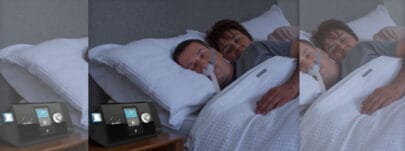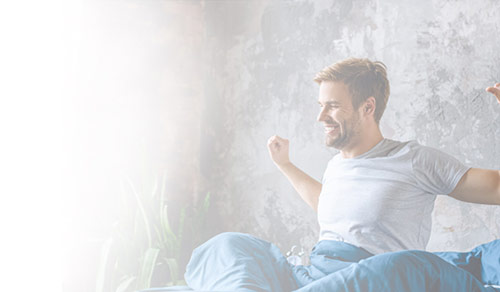
Choosing the Right ResMed CPAP Accessories for Your Needs
Continued compliance with CPAP is key in treating obstructive sleep apnea. Without treatment, sleep apnea increases your risk of serious health conditions including heart disease, high blood pressure, stroke and diabetes.
It can also affect your mood and place you in increased danger of traffic accidents from daytime fatigue caused by poor-quality sleep.
Wearing a mask while you sleep and inhaling pressurized air can require a period of adjustment. Choosing the right ResMed accessories for your needs can make all the difference for compliance with the treatment.
The correct accessories will aid comfort and mean you are less likely to be tempted to skip treatment even for just one night.
Masks
The mask is perhaps the most crucial of the ResMed CPAP accessories. It is paramount to find a comfortable mask. Without a comfortable mask, the odds of staying compliant with the treatment will be reduced. However, you may not be supplied with the most suitable mask the first time around.
Therefore, it is important not to just accept any mask, but to work with your sleep specialist and equipment provider to find the right one for you. A correctly fitting, comfortable mask is more likely to result in successful sleep apnea treatment.
There are three main types of masks:
- Full Face Mask
This type of mask will cover the nose and mouth. This tends to be the option for people who breathe through their mouths when they sleep. However, for some it can feel claustrophobic, and they may be better off exploring either of the following options.
- Nasal Mask
This style of mask covers the nose, usually extending from the bridge of the nose down to just above the mouth. There is less contact with the facial skin and can be more comfortable when sleeping on your side as it is less bulky.
- Nasal Pillow Mask
This has the lowest profile of the three main mask types. Two small prongs that are inserted into the nostrils deliver the air that keeps your airways open. As with nasal masks, a nasal pillow mask is an option for those who breathe through their nose when sleeping.
There are several considerations about a nasal mask – comfort, and whether you breathe through your mouth or nose. But there are other issues you should discuss with your sleep specialist — any allergies or if you regularly suffer from nasal congestion, as this could mean a nasal mask is less viable.
When choosing your ResMed CPAP accessories, comfort and compliance are at the forefront of their mask options. Their masks are listed under three descriptive elements. These are:
- Minimalist – discreet and lightweight masks for minimal facial skin contact. The range includes the AirFit P10 nasal pillow mask, the AirFit N30 nasal mask, and the AirFit F30 full face mask.
- Freedom – designed for those who move around a fair bit during the night and those who find they may sleep on their front. The range includes the AirFit P30i nasal pillow mask, the AirFit N30i nasal mask, and the AirFit F30i full face mask.
- Versatile – A universal mask offering. One to fit all faces and air pressure requirements. The range includes the AirFit N20 nasal mask and the AirFit F20 full face mask.
Mask Cushions
The mask cushion sits against the skin and will require regular replacement. Comfortable cushions will aid compliance and the first element to consider is the cushion size. Mask cushions are generally small, medium, or large and your equipment provider will use a template to help you receive the correct size.
Equally important is the material of the mask cushion as this will be the one part that sits directly against your skin. The two main materials are:
- Silicone – as found on the AirFit F20 range of nasal and full face masks.
- Ultrasoft memory foam – a cushion designed to fit the contours of the wearer’s face and first used on the ResMed AirTouch F20 full face mask.
Tubing
The right tubing can also aid comfort and boost compliance. As well as standard tubing, you can purchase slimline tubing and heated tubing.
The ResMed ClimateLineAir heated tubing ensures the air delivered to your mask maintains a consistent warm temperature. This can aid comfort as well as prevent moisture from forming in the tubing by balancing the temperature within the tubing to that of room temperature.
SlimLine tubing offers a more comfortable solution for someone who may move a lot during the night. Light, thin and flexible, it is also a good portable option when using CPAP away from home.
Humidifier Chamber
Most devices come with a humidifier chamber. By filling the chamber with distilled water, you moisten the air delivered to your mask. This makes inhaling the air more comfortable. Dry air can irritate the airways, cause a dry mouth, and even headaches or nose bleeds.
Filters
CPAP devices pull in air from the room and use filters to remove allergens such as dust and pet dander before delivering the pressurized air to the mask. They are made of fine mesh and need to be checked and replaced regularly to maintain their efficiency.
Replacing ResMed CPAP Accessories
Accessories will need replacing regularly to maintain the effectiveness of the treatment as well as hygiene levels. The following timescale is a guide to how often you should replace each item, but you should always check the product manufacturer’s guidelines.
- Mask frame – every three months
- Mask cushion – every month
- Mask headgear – every six months
- Filters – every month
- Tubing – every three months
- Humidifier chamber – every six months
Feedback from users indicates that seven out of ten respondents report sleeping better after they replace their accessories.
Choosing the right mask accessories, as well as replacing them as required, boosts compliance. By using CPAP every night, you can remove the interruptions to sleep caused by obstructive sleep apnea and reduce your risk of the health conditions linked to the sleep disorder.
Source:
https://www.resmed.com/en-us/sleep-apnea/campaigns/sleep-apnea-how-to-start-cpap-therapy/



